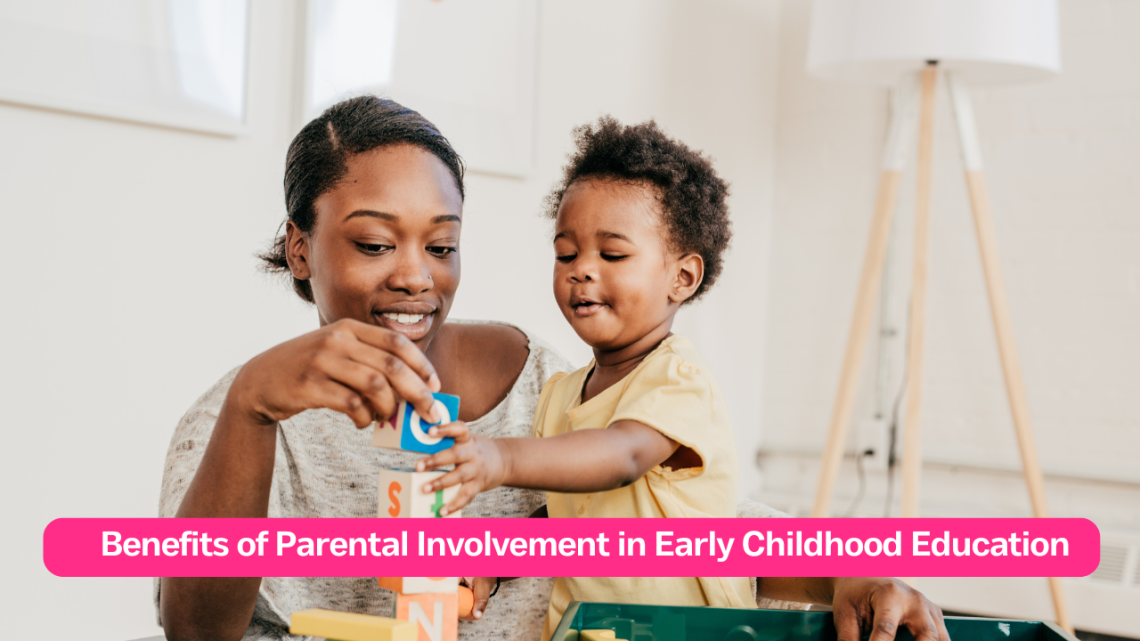As the first educators in a child’s life, parents hold an unparalleled influence over their early learning experiences. It’s a role that extends far beyond the confines of formal schooling, starting from the earliest stages of development.
Research consistently underscores parental involvement’s profound impact on a child’s academic journey, particularly in early childhood. Eighty-one percent of students are more likely to graduate high school if they have supportive parents.
Children whose parents actively engage in their education typically exhibit better grades, higher standardized test scores, and improved classroom behavior.
Benefits of Parental Involvement in Early Childhood Education
However, parental involvement is not without its challenges. Families, especially those with limited resources, often confront barriers that hinder their active participation in their children’s education.
These obstacles can range from previous negative school experiences to a lack of understanding of child development or language barriers. These experiences may result in feelings of isolation and apprehension.
Addressing these barriers is crucial for fostering an inclusive educational environment where all parents feel empowered to contribute.
The Power of Supportive Programs
Home instruction initiatives like Home Improvement Programs for Preschool Youngsters (HIPPY) have shown significant success in responding to these challenges. HIPPY empowers parents to become their children’s primary educators, particularly those who may lack resources or experience isolation.
The program has effectively enhanced children’s school readiness, behavior, attendance, test scores, and overall academic performance. Moreover, parents involved in such programs report increased engagement in education and reduced screen time for their children.
Best Practices for Parental Involvement
Here are some valuable tips for parents who want to be involved in their children’s education.

Stay informed and engaged.
Keep up-to-date with school events, policies, and your child’s academic progress. Regularly check school websites, newsletters, and communication from teachers.
Maintain effective communication with teachers.
Establish a positive, open line of communication with your child’s teachers. Attend parent-teacher conferences and be proactive in discussing your child’s needs, strengths, and areas for improvement.
Support learning at home
Create a conducive learning environment at home. Help with homework, but also encourage independent problem-solving. It would help to familiarize yourself with the latest tech used in education. This knowledge will help parents better grasp how they can make learning more accessible for their kids.
Encourage educational activities
Beyond homework, engage your child in educational activities that align with their interests. Activities include science experiments, math games, historical documentaries, or art projects.
Balance academic and extracurricular activities.
Encourage children to participate in extracurricular activities, whether sports, arts, or clubs, to promote well-rounded development. Remember, learning shouldn’t always be within the four walls of the classroom.
Set educational goals together.
Set realistic and achievable academic goals with your child. This can include performance goals, learning new skills, or improving in certain areas.
Understand your child’s learning style.
Every child has a unique way of learning. Understand whether your child is a visual, auditory, or kinesthetic learner and support their learning accordingly.
Advocate for your child.
Be your child’s advocate for their educational needs, especially if they have special needs or require additional support. This includes ensuring they receive the appropriate resources and accommodations to thrive academically and adapt socially within the school environment.
Be Present for Your Child
Schools play a pivotal role in encouraging parental involvement. Creating a welcoming and inclusive school culture is a critical first step. Parents must engage in formal school events and be involved in decision-making processes.
Schools can encourage this by offering resources for home learning and equipping teachers with the skills to connect meaningfully with parents.
Parental Involvement in Early Childhood Education
The evidence is clear: parental involvement in early childhood education significantly predicts academic success and social development.
As such, schools and communities must invest in strategies and programs that foster and facilitate parental engagement. With this, it’s possible to lay a strong foundation for our children’s educational journey. Parents play a crucial role in setting them on the path to lifelong success and fulfillment.




